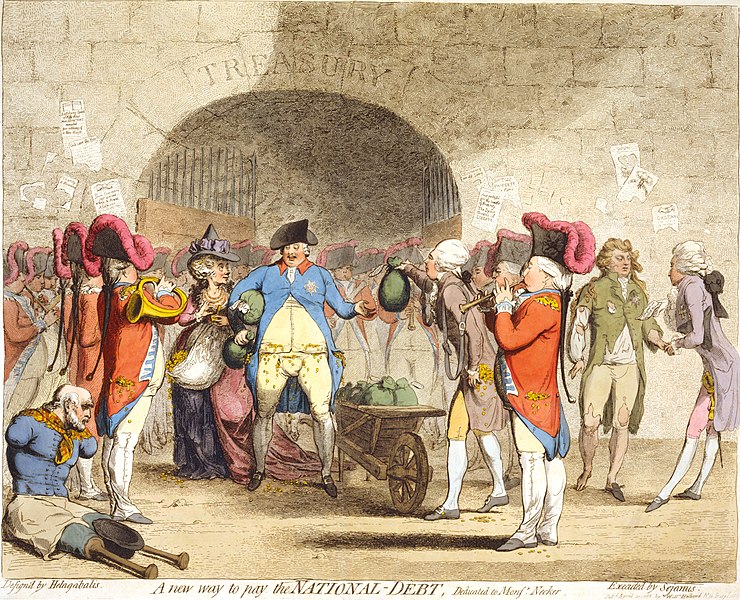.
O Friend! one feeling was there which belong'd
To this great City, by exclusive right;
How often in the overflowing Streets,
Have I gone forward with the Crowd, and said
Unto myself, the face of every one
That passes by me is a mystery.
To this great City, by exclusive right;
How often in the overflowing Streets,
Have I gone forward with the Crowd, and said
Unto myself, the face of every one
That passes by me is a mystery.
Thus have I look'd, nor ceas'd to look, oppress'd
By thoughts of what, and whither, when and how,
Until the shapes before my eyes became
A second-sight procession, such as glides
Over still mountains, or appears in dreams;
And all the ballast of familiar life,
The present, and the past; hope, fear; all stays,
All laws of acting, thinking, speaking man
Went from me, neither knowing me, nor known.
Until the shapes before my eyes became
A second-sight procession, such as glides
Over still mountains, or appears in dreams;
And all the ballast of familiar life,
The present, and the past; hope, fear; all stays,
All laws of acting, thinking, speaking man
Went from me, neither knowing me, nor known.
And once, far-travell'd in such mood, beyond
The reach of common indications, lost
Amid the moving pageant, 'twas my chance
Abruptly to be smitten with the view
Of a blind Beggar, who, with upright face,
Stood propp'd against a Wall, upon his Chest
Wearing a written paper, to explain
The story of the Man, and who he was.
My mind did at this spectacle turn round
As with the might of waters, and it seem'd
To me that in this Label was a type,
Or emblem, of the utmost that we know
Both of ourselves and of the universe;
And, on the shape of that unmoving man,
His fixèd face and sightless eyes, I looked,
As if admonish'd from another world.
The reach of common indications, lost
Amid the moving pageant, 'twas my chance
Abruptly to be smitten with the view
Of a blind Beggar, who, with upright face,
Stood propp'd against a Wall, upon his Chest
Wearing a written paper, to explain
The story of the Man, and who he was.
My mind did at this spectacle turn round
As with the might of waters, and it seem'd
To me that in this Label was a type,
Or emblem, of the utmost that we know
Both of ourselves and of the universe;
And, on the shape of that unmoving man,
His fixèd face and sightless eyes, I looked,
As if admonish'd from another world.
From The Prelude, Book VII (Residence in London): William Wordsworth, 1805
Shibuya shopping district, Tokyo, night: photo by Bantosh, 2006
A new way to pay the national-debt / design'd by Helagabalis ; executed by Sejanus: James Gillray, 1786 (British Cartoon Prints Collection, Library of Congress)
(Cartoon shows King George III and Queen Charlotte standing before the Treasury, moneybags under their arms, their pockets overflowing and bursting with coins (funds from the Treasury to cover Royal debts); William Pitt, his pockets full of coins, hands the king another moneybag taken from an overflowing wheelbarrow; the Prince of Wales, George IV, stands to the right looking destitute; a quadriplegic beggar sits on the ground to the left with an overturned and empty hat between the stubs of his legs, which are fitted with prostheses.)





4 comments:
All of the pictures in this round of poems, and particularly (for me) the upper photo in North Labrador, the New Zealand stones and the Tokyo city shot, are spot on and unforgettable. Hold that picture, indeed. I'd never read Weldon Kees before.
'...upon his Chest
Wearing a written paper, to explain
The story of the Man, and who he was.'
think what i write everyday is like that paper on the beggar's chest... explaining the story of the man... and i tend to read 'man' with 2 references... both in this poem and my ramblings...
city... and why i've never gone forward with the crowd?
hmmmm...
thanks for sharing this gem with us....
Raymond Williams speaks of Wordsworth's lines on his experience of London as an early attempt to describe the modern city as a unique form of society.
Where Blake saw a common condition of "weakness and woe," wrote Williams, "Wordsworth saw strangeness, a loss of connection, not at first in social but in perceptual ways: a failure of identity in the crowd of others which worked back to a loss of identity in the self, and then, in these ways, in society itself, its overcoming and replacement by a procession of images..."
And Williams again, elsewhere, on this same passage: "What is evident here is the rapid transition from the mundane fact that the people in the crowd are unknown to the observer -- though we now forget what a novel experience that must in any case have been to people used to customary small settlements -- to the now characteristic interpretation of 'strangeness' as 'mystery'. Ordinary modes of perceiving others are seen as overborne by the collapse of normal relationships and their laws: a loss of 'the ballast of familiar life'. Other people are then seen as if in 'second sight' or, crucially, as in dreams: a major point of reference for many subsequent modern artistic techniques."
Williams goes on to cite Engels on "the disolution of mankind into monads": "They crowd one another as though they had nothing in common, nothing to do with one another..."
This sense of the crowd as meaningless blur was of course less of a shock by the time of Engels than it had been a few years earlier for Wordsworth. And by now that blur feeling is so common and ingrained as to feel almost "natural" as we proceed defensively through the urban crowd.
The top image from Tokyo was chosen for its representation of that blur.
__
By the way, while I understand it's unrealistic to think that anyone in the blogosphere might actually wish to take the time to look into The Prelude at this late date, in the event such a freakish development should occur, venturers are advised to seek out the de Selincourt edition, which reproduces the 1805 text, used in this post, rather than the 1850 "revised" (second-thoughts) draft, which is the text generally available on the 'net.
By the way, for anyone interested in following out Raymond Williams' line of thought on The Prelude, the passages cited in the above comment may be found in his magisterial work The Country and the City, and in an essay, Metropolitan Perceptions and the Emergence of Modernism (collected in The Politics of Modernism).
Post a Comment